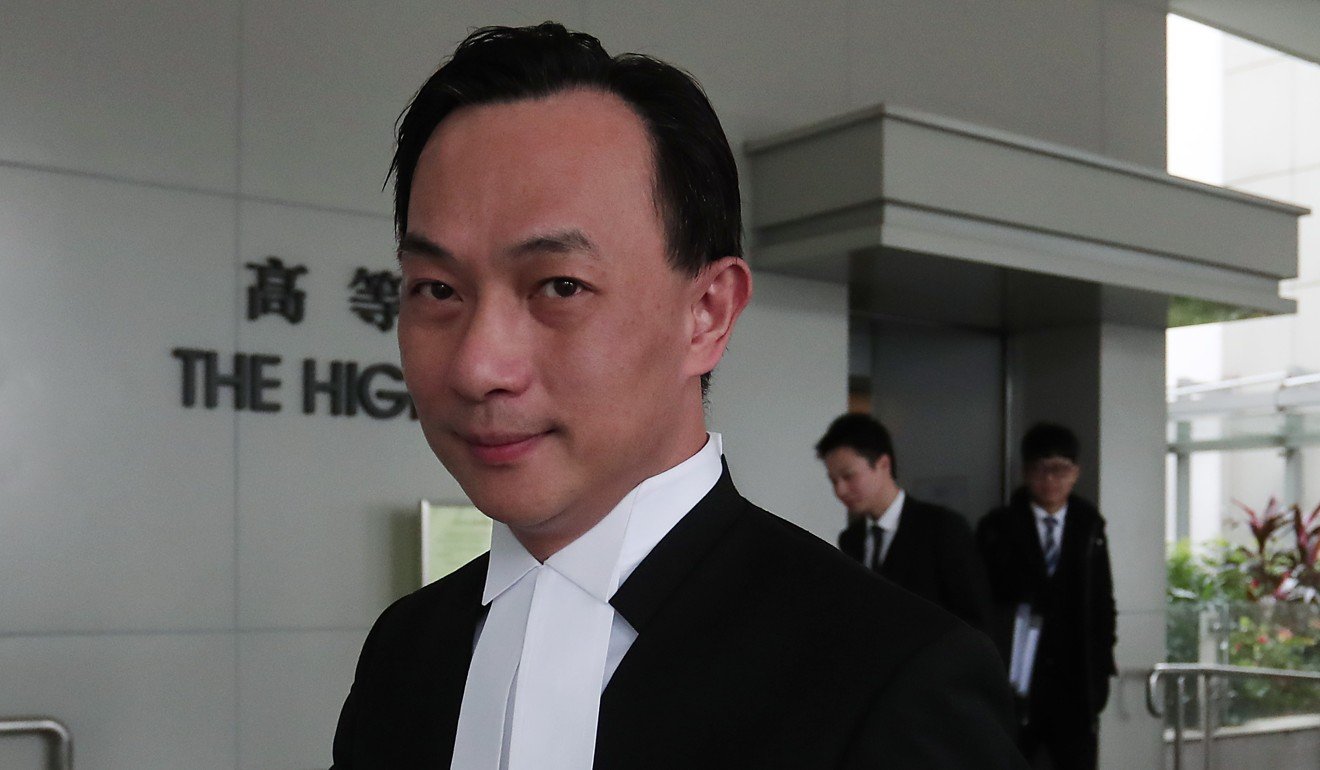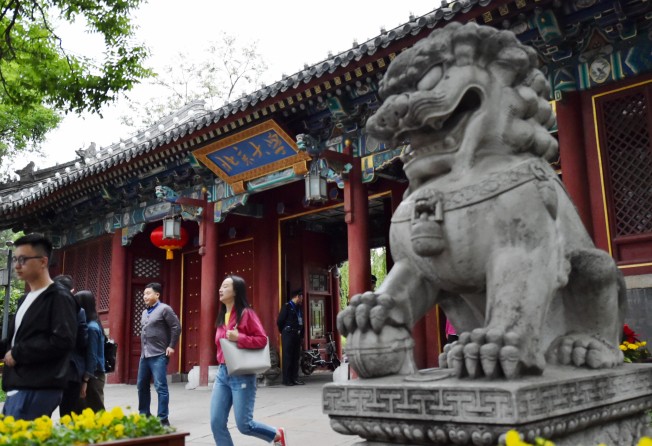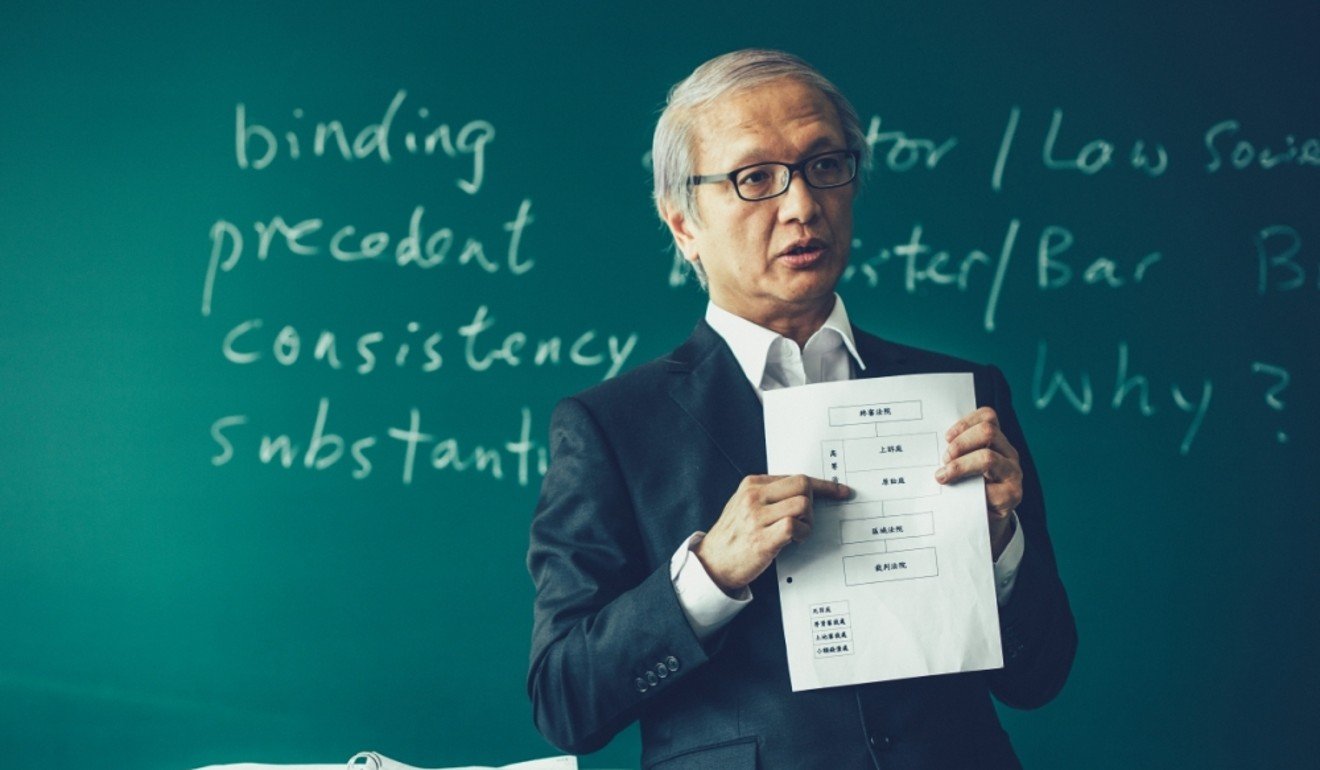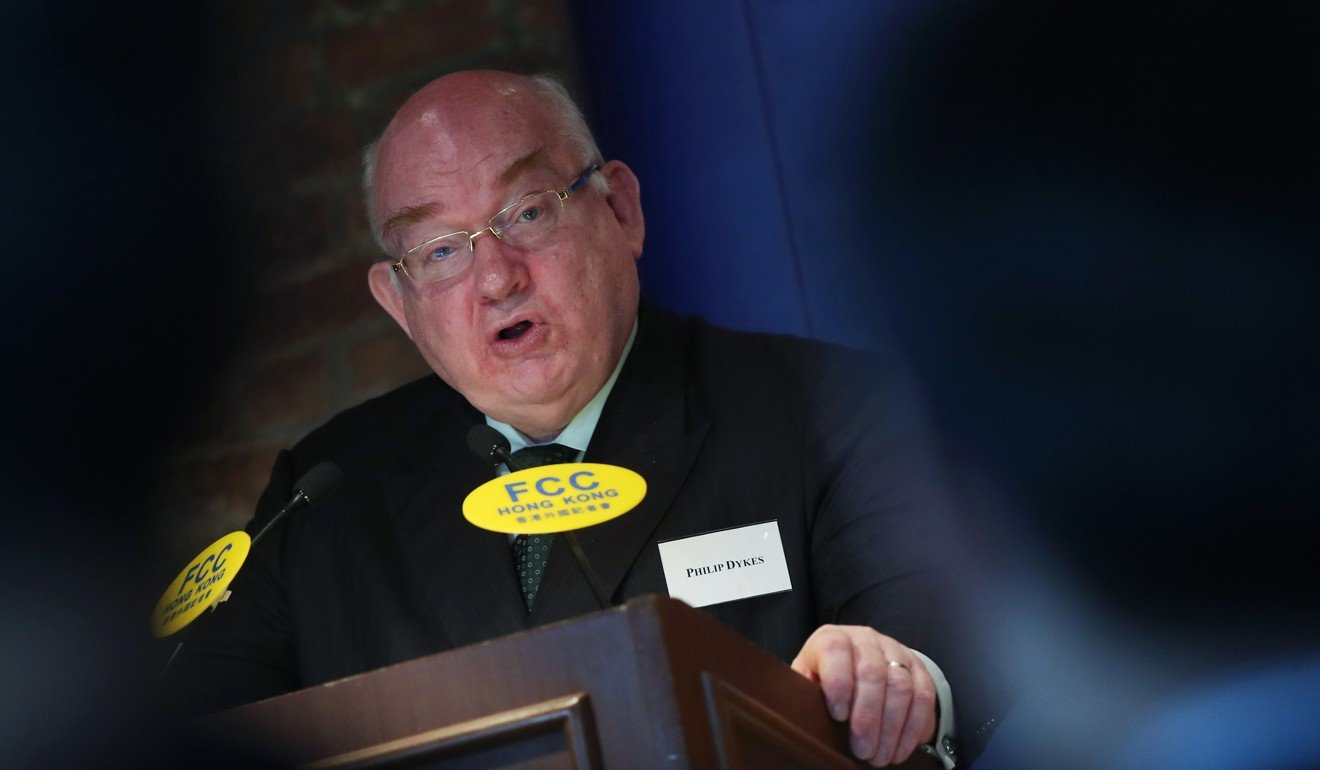
Beijing put pressure on Peking University to stop Hong Kong human rights lawyers teaching course on mainland, barrister says
City barristers had been teaching module on judicial review and a citizen’s fundamental personal rights since 2011, but course coordinator said pressure from above forced the change

A Peking University official claimed Beijing pressured it to ban two Hong Kong human rights lawyers from teaching a law course there, one of the barristers concerned said on Tuesday.
Cheung Yiu-leung and Hector Pun had been teaching a module on judicial review and a citizen’s fundamental personal rights at the university since 2011.
During an interview with online radio station D100, Cheung said the university’s course coordinator, law professor Jiang Shigong, told the city’s Bar Association the decision to replace the lawyers came from above.

“From what Jiang told the person in charge from the Bar, he seems to feel wronged,” Cheung said. “[He said:] ‘We couldn’t let the two [lawyers] come to Beijing, as we faced great pressure from [Beijing’s] liaison office and [State Council’s] Hong Kong and Macau office.’”
Two senior legal sources from the association confirmed that Jiang gave the same explanation to the professional body.

Philip Dykes, the association’s chairman, would not speculate on whether the two offices in Beijing responsible for Hong Kong affairs were behind the row.
“My impression is that the decision is not entirely to Peking University’s liking,” Dykes said.
Jiang and the Hong Kong and Macau Affairs Office have yet to reply to questions from the Post about the matter.
Meanwhile, the liaison office said any questions should be posted to them, and they could not comment before they had received them.
The module was part of a memorandum of understanding in 2017 between the association and the university, which called for an “adjustment” in the relationship.
News of the university’s decision to bar the pair first emerged on Monday, when Dykes revealed it had told the association not to send Cheung and Pun to teach the course this year.
Dykes was also refused permission to attend a closing ceremony for the course in Beijing in June.
In response, this month the association announced it had decided to suspend the course indefinitely. A separate course on arbitration at the university however was not affected.
Two sources confirmed that Peking University only asked for the pair to be replaced, although the association has always decided who to send, and what to teach.
Several other association members have been cleared to continue teaching other modules including trade dispute resolution, general legal systems, and interpretation of law.

The association did offer to send Dykes and another leading human rights law scholar, Johannes Chan Man-mun, instead, but that was rejected by the university.
In contrast, Jiang told Chinese news media that the course instructor, and contents, changed every year, and it had been decided not to have a closing ceremony.
Cheung and Pun have worked on human rights issues in Hong Kong and on the mainland.
Pun has represented social activists, including ousted lawmakers “Long Hair” Leung Kwok-hung and Sixtus Baggio Leung Chung-hang. Cheung is a past vice-chairman of the China Human Rights Lawyers Concern Group.
Cheung, who has volunteered to teach the course since its inception since 2011, said mainland authorities had always been well aware of his human rights work. The change, he said, could be related to Dykes, a liberal, being elected Bar Association chairman in January.
“The past chairman was noticeably more Beijing-friendly, while Dykes was not, plus his human rights advocacy background, may explain why they were not so friendly [to the Bar],” Cheung said.
Before the incident, he said, the university had never intervened or “reminded” barristers what they should teach.
“For all these years we taught freely, and we appreciated the need to respect [the mainland], so we only taught about Hong Kong’s common law concept,” Cheung said. “Never did we bring up one-party leadership, or whether the judiciary was independent on the mainland.”
Even if part of the course was about the concept of public law, including judicial review against the government, it was entirely up to barristers from the association to teach and mark the papers.
For instance, Pun, who taught judicial review and shared some of his cases with students, deliberately avoided bringing up the case of pro-independence activist Baggio Leung, who was ousted from Legco over improper oath-taking in 2017.
Things started to change in late 2017.
According to a memorandum of understanding from June 2017 between the association and the university obtained by the Post, the third lecture taught by Pun and Cheung needed to be adjusted “to avoid being duplicated to rest of the course”.
Senior counsel Paul Lam Ting-kwok, the then association chairman, said the “adjustment” referred to the content, but could not remember which part. He declined to comment further.
Under the agreement, Peking University would be responsible for 40 per cent of marking and had an equal say in granting students Bar Association scholarships.
In exchange, the university would gradually offer teaching positions to barristers “depending on their performance”.
Dykes said he was not aware of the memorandum, and would not comment.